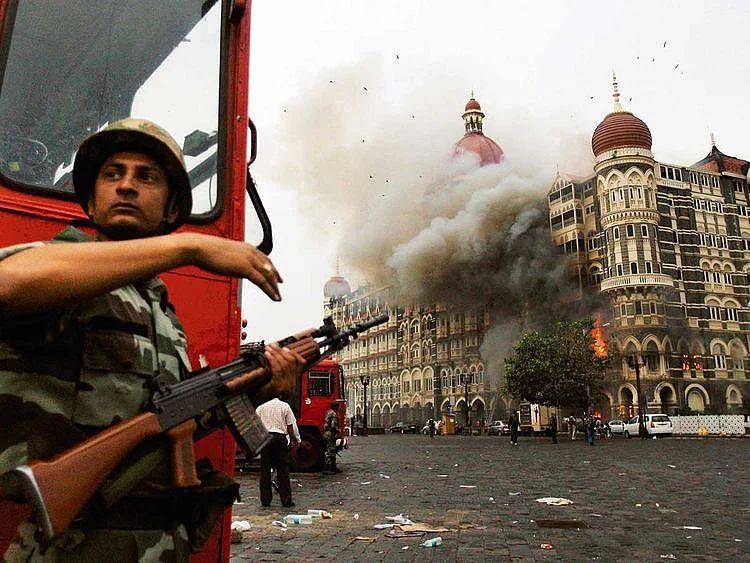Pakistan jails three accused of financing Mumbai attacks
Move comes ahead of a September deadline for Pakistan to avoid being blacklisted by FATF

Also In This Package
Pakistan floods: at least 90 killed in monsoon rains
See: Pakistani stars' jaw-dropping transformations
In Pictures: Pakistan tourists flock to major spots
Photos: Dozens dead as record rains lash Pakistan
Pakistan Independence Day: All set for celebrations
India-Pakistan unique bond rooted in culture, movies
Lahore: A court in Pakistan has sentenced to prison three leaders of Jamat-ud-Dawa, an organisation accused by India and the United States of masterminding the 2008 attacks in Mumbai.
The sentencing comes ahead of a September deadline for Pakistan to avoid being blacklisted for failing to curb terror financing by global financial watchdog the Financial Action Task Force (FATF).
Also Read
Photos: Rain lashes Mumbai for third straight dayPhotos: Heavy rains disrupt Mumbai's normal lifePhotos: Mumbai and Konkan in India hit by heavy rains and floodsIn Pictures: Bollywood condemns JNU violence with peaceful protestInclusion on the blacklist, alongside Iran and North Korea, would mean being shunned by international financial institutions. The watchdog has called for Pakistan to prosecute those funding terrorism, as well as to enact laws to help track and stop terror financing.
Malik Zafar Iqbal and Abdul Salam were each handed 16-1/2 year total sentences on four charges, to be served concurrently, while a third man, Hafiz Abdul Rehman Makki, got 1-1/2 years on one charge, according to a court judgment seen by Reuters.
The men were associates of Hafiz Saeed, who was sentenced to a total of 11 years in prison in February. All the sentences are concurrent so Saeed, Iqbal and Salam will serve five years.
Saeed founded and led Lashkar-e-Taiba (LeT), or the Army of the Pure, a group blamed by India and the United States for the 2008 Mumbai attacks, which killed 160 people, including Americans and other foreigners.
Saeed and his associates also face a further slew of cases for allegedly financing militant activities, while Iqbal and Makki have already been convicted in several cases.
Saeed says his network, which spans 300 seminaries and schools, hospitals, a publishing house and ambulance services, has no ties to militant groups. Jamat-ud-Dawa funds the militant wing LeT.
A 2011 US sanctions designation describes Iqbal as a co-founder of LeT and in charge of its financing activities.
Salam is described as the interim leader of the group during the brief periods when Saeed was arrested in the aftermath of the Mumbai attacks, and running its network of seminaries.
Sign up for the Daily Briefing
Get the latest news and updates straight to your inbox
Network Links
GN StoreDownload our app
© Al Nisr Publishing LLC 2025. All rights reserved.